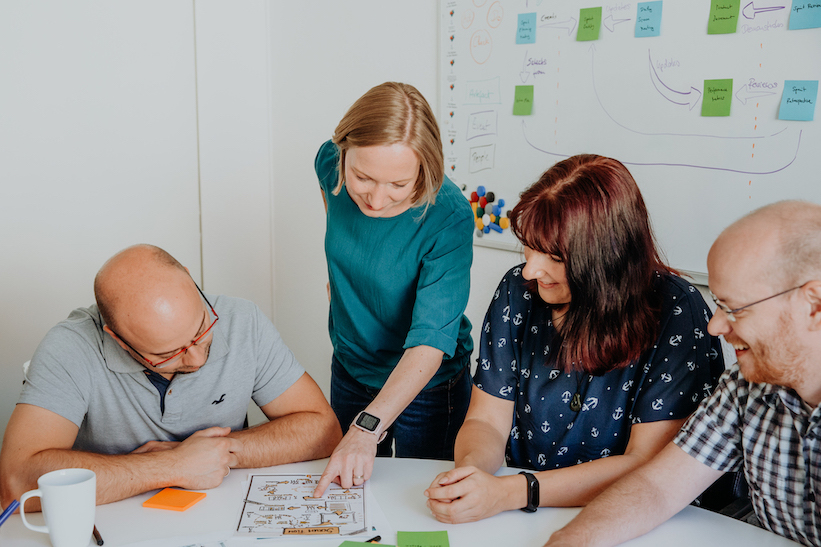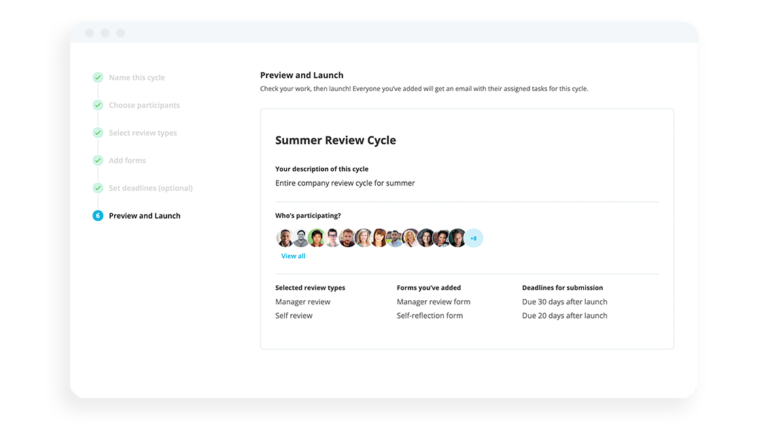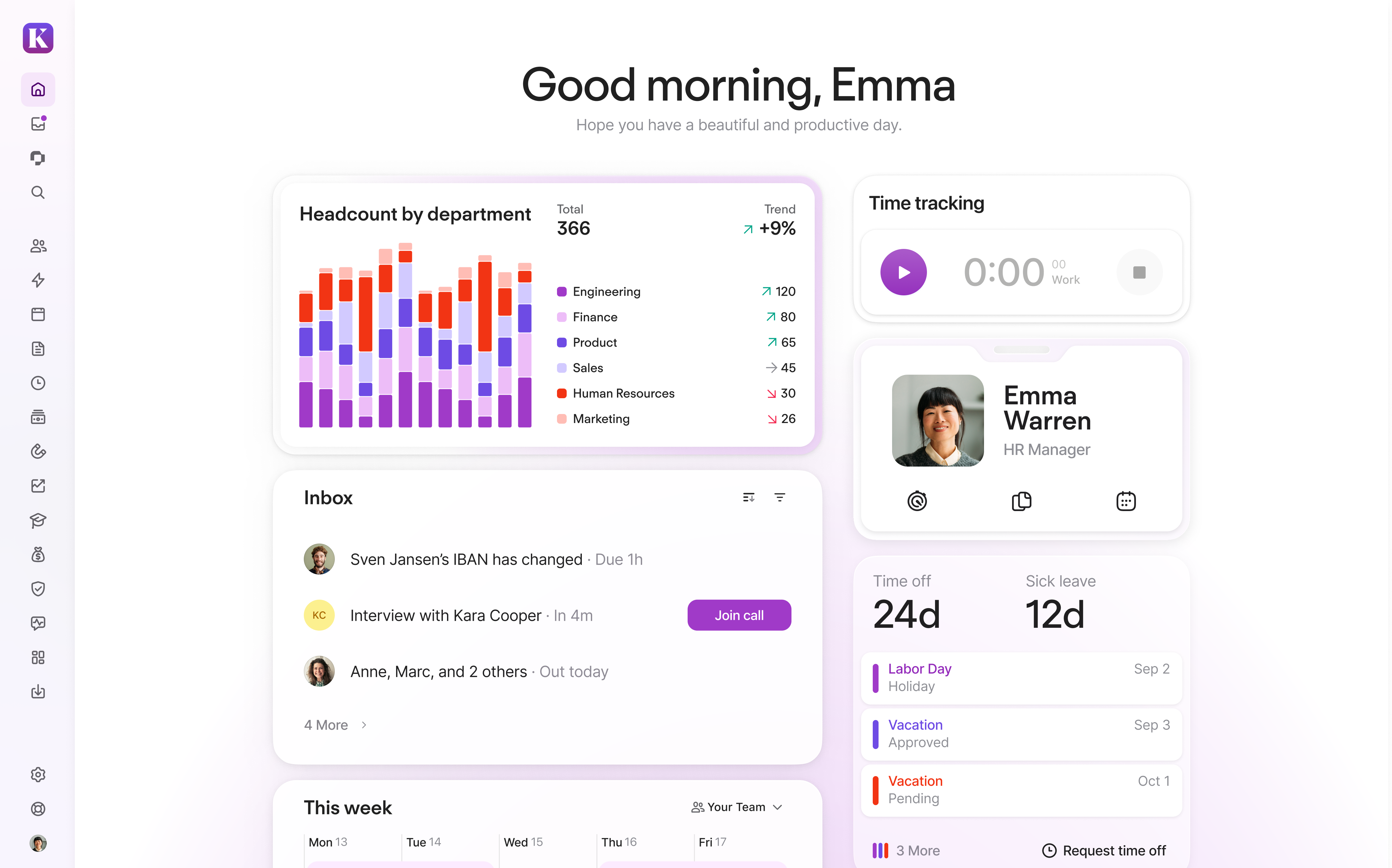Growth Mindset in the Workplace: Definition & Tips

Can embracing a growth mindset unlock new opportunities for your organisation? In this article, we’ll use examples to help define the term and provide tips on how to apply it within your own unique organisation.
Key Facts
A growth mindset means believing that there’s always room for improvement.
In the workplace, a growth mindset supports continuous improvement and contributes to business growth.
Encouraging learning opportunities can help employees become more growth-oriented.
What is a Growth Mindset?
A growth mindset is the belief that someone has the capacity to continue learning and growing regardless of inherent ability. It applies to all employees, from entry-level roles right up to C-suite management positions.
More specifically, a growth mindset means that employees learn from their mistakes and use them to continue learning. In the workplace, a growth mindset can drive organisational culture and help fuel company-wide progress.
What are Examples of a Growth Mindset?
Some examples of a growth mindset at work include:
Instead of being discouraged by criticism, your workforce is energised and motivated to improve their skills.
Managers teach employees critical thinking skills to help them identify and solve problems.
Employees aren’t afraid to experiment to find new, more efficient ways to handle their responsibilities.
Your workforce understands that failure is possible but doesn’t let that stop them from taking on challenging work.
Are Processes Getting in the Way of Development?

Skip all those cumbersome processes by automating performance with Personio today.
Find out moreThe Difference Between Fixed and Growth Mindsets
Alongside a growth mindset, employees may fall into a fixed mindset representing opposing beliefs. Below is a table illustrating the major differences between them:
Fixed Mindset | Growth Mindset |
|---|---|
Believes knowledge, ability and personality are unchangeable. | Believes that their inherent abilities can always be improved and that it’s always possible to learn a new skill or talent. |
Defines success as an acknowledgement of inherent traits and skills. | Defines success as acknowledging the effort they put in to learn and improve. |
Sees failure as the limit of their abilities. | Sees failure as an opportunity to grow. |
Reaches the plateau of their career early in life and doesn’t seek to go further despite potentially being capable of more. | Tries to grow further and further throughout their lives, reaching higher levels of achievement. |
4 Tips To Develop a Growth Mindset at Work
If you feel your workforce can benefit from the challenge of developing a growth mindset, you can take action to set these standards. Use the methods below to help engender a growth mindset across your organisation…
1. Encourage Creativity
Outline your employees’ roles and tasks, but allow them to find their own process for accomplishing their responsibilities. While creativity has the chance for failure, success can reveal more effective ways of doing things that can benefit your entire organisation.
2. Support Cross-Discipline Learning and Coaching
Allow employees to explore different company roles and find where they’d like to expand their skill set. They can collaborate with teams in different departments or even temporarily transfer to shadow an experienced employee. Additionally, leadership can hold seminars explaining their department’s purpose and enrich their learning and development.
3. Be Patient With the Leaning Process
Understand that growth is gradual and that adopting a growth mindset won’t produce results overnight. As your employees practise these skills and this new approach to their work, they’ll consistently grow over the long term and produce increasingly better results for your company.
4. Promote Participation
Your organisation can help employees grow by giving equal merit to their ideas. Not every idea needs to be implemented, but genuinely discussing them encourages people to participate more in future decision-making. The more they participate, the more attuned their ideas become to company goals.
Frequently Asked Questions About Growth Mindsets
What Is the Meaning of a Growth Mindset?
A growth mindset is the belief that you can continue to grow and improve yourself beyond inherent talents or personality traits.
What Are 5 Characteristics of a Growth Mindset?
The characteristics of a growth mindset are:
Passionate. This is motivation to want to improve. Working environments often influences this.
Cooperative. This recognises the value of peers and learning from them.
Driven. Even when things are tough, a growth mindset encourages continued pursuit of goals.
Resilience. A growth mindset accepts criticism and the employee learns from it for better outcomes.
Graciousness. A positive outlook on their future skills and the people who help get them therehelps a growth mindset.
What Are the Benefits of a Growth Mindset?
Encouraging a growth mindset in your employees can improve employee morale, increase trust between employees, and lead to more fruitful risk-taking.
Adopt a Growth Mindset with Personio
It can be difficult to determine if your efforts to switch your organisation to a growth mindset are producing results because they occur over a long period. Personio’s performance tools allow you to keep track of an employees’ progress and offer holistic feedback to help them improve further. Book your free demo today to find out how else Personio can help you.
Disclaimer
We would like to inform you that the contents of our website (including any legal contributions) are for non-binding informational purposes only and does not in any way constitute legal advice. The content of this information cannot and is not intended to replace individual and binding legal advice from e.g. a lawyer that addresses your specific situation. In this respect, all information provided is without guarantee of correctness, completeness and up-to-dateness.

